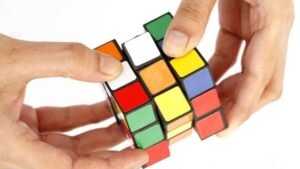Trivia games are not just fun and engaging; they also play a significant role in building teamwork and collaboration among participants. Whether it’s a workplace, school, or casual group setting, trivia games bring people together and promote positive interactions. In this article, we will explore how trivia games can help improve teamwork and collaboration in various environments.

Encouraging Communication
One of the key aspects of teamwork is effective communication. Trivia games require players to discuss answers, share ideas, and listen to each other. This encourages open communication, allowing team members to express their thoughts and opinions in a supportive environment. When people communicate effectively, they can solve problems faster and come to better decisions, which is essential in any collaborative effort.
For example, in a workplace trivia game, employees must talk about possible answers, explain their reasoning, and decide as a team. This process not only helps in sharing knowledge but also improves the team’s ability to work together toward a common goal.
Promoting Problem-Solving Skills
Trivia games often present questions that require critical thinking and problem-solving. Teams must analyze the question, discuss possible answers, and come to a decision quickly. This process helps develop problem-solving skills that are essential in real-life scenarios, both professionally and personally.
Working together to solve trivia questions allows team members to brainstorm ideas and come up with creative solutions. This collaborative problem-solving is a valuable skill that can be applied in many different areas, from work tasks to everyday challenges.
Fostering Healthy Competition
While trivia games promote collaboration, they also introduce an element of healthy competition. Competing against other teams encourages a sense of achievement and motivates team members to do their best. However, in a trivia game, the competition is friendly and fun, which prevents conflicts and promotes a positive, cooperative atmosphere.
When teams work together to win a trivia game, they learn to rely on each other’s strengths and talents. This mutual trust and respect are vital for building strong teamwork. Healthy competition encourages individuals to perform at their best while still focusing on the collective success of the team.
Strengthening Trust Among Team Members
Building trust is an essential part of teamwork, and trivia games provide a platform for doing just that. As teams play together and share their knowledge, they build confidence in each other’s abilities. Trust grows as team members rely on one another to answer questions correctly and contribute to the team’s overall performance.
For example, in a trivia game, one player might specialize in history, while another is great with science. By relying on each other’s expertise, team members learn to trust that their teammates will bring valuable knowledge to the table, creating a stronger bond among them.
Enhancing Collaboration Across Different Teams
Trivia games can also be used to bring together individuals from different teams or departments, promoting cross-team collaboration. By participating in a trivia game together, employees from various areas of a company can learn more about each other and work as a unified group.
This kind of collaboration helps break down silos and encourages the sharing of ideas and perspectives across departments. When people from different backgrounds and skill sets work together in a trivia game, they learn to appreciate each other’s unique contributions, making it easier to collaborate on future projects.
Improving Morale and Team Spirit
Engaging in trivia games can also boost team morale and create a sense of unity. Fun activities like trivia games provide a break from the daily routine and allow team members to relax and bond in a low-pressure environment. When people enjoy themselves and feel connected to their colleagues, their overall job satisfaction and team spirit improve.
As teams work together to answer questions and solve problems, they experience moments of success and laughter, which strengthens their relationships. A positive and motivated team is more likely to collaborate effectively and achieve success in their professional tasks.
Conclusion
Trivia games play a powerful role in building teamwork and collaboration. They encourage communication, promote problem-solving, foster healthy competition, strengthen trust, and enhance collaboration across teams. Moreover, trivia games improve team morale and create a sense of unity among participants. Whether you’re looking to boost collaboration in the workplace or enhance teamwork in other settings, trivia games are a fun and effective tool to achieve these goals.
By incorporating trivia games into team-building activities, you can improve teamwork, boost collaboration, and create a more cohesive and productive group.



